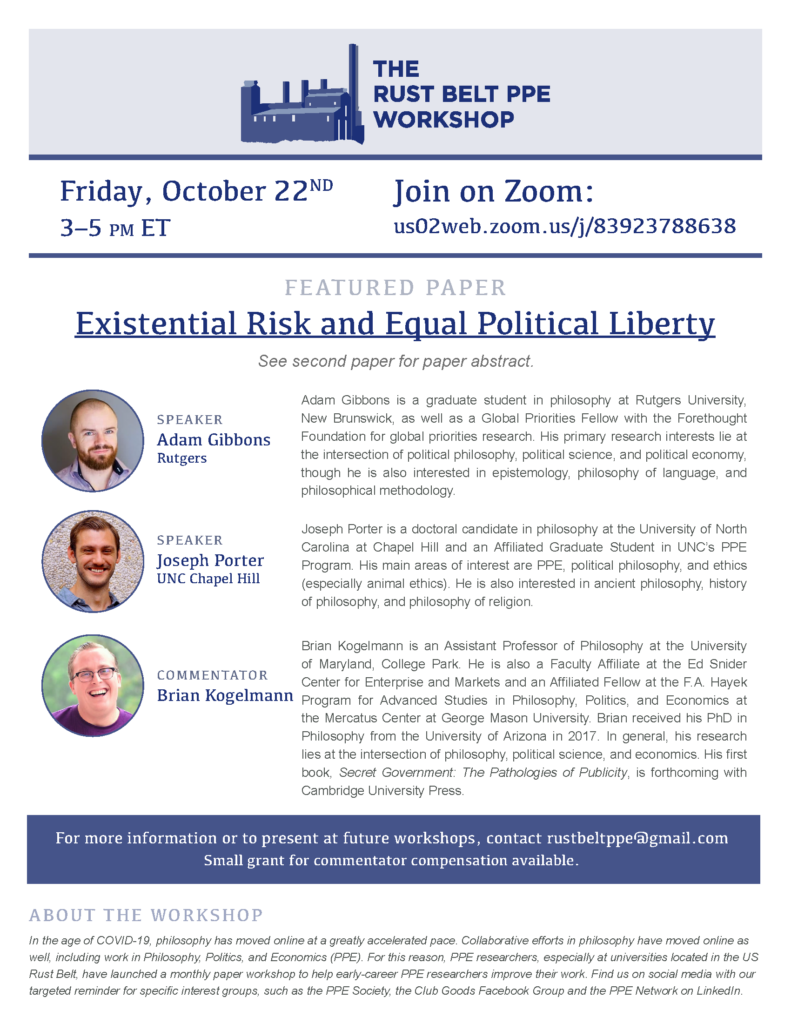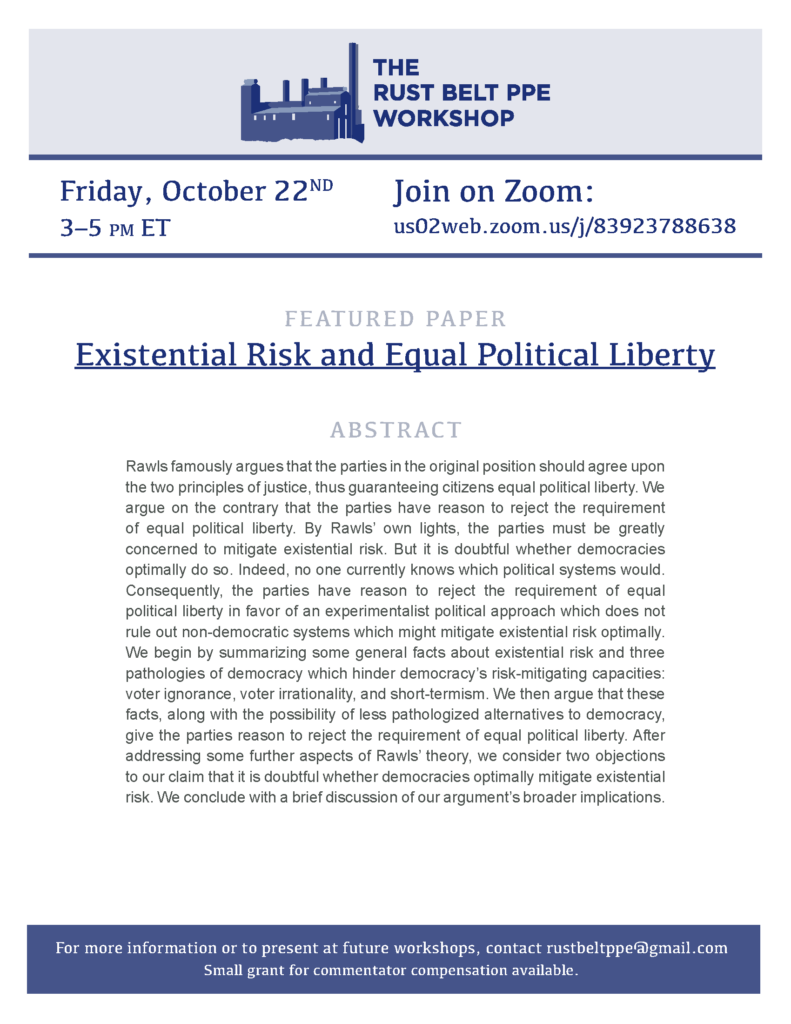RUST BELT PPE WORKSHOP
“Existential Risk and Equal Political Liberty,” with speakers Adam Gibbons (Rutgers) and Joseph Porter (UNC), and commentator Brian Kogelmann (University of Maryland)
Friday, October 22, 3-5pm ET
Join via Zoom: http://us02web.zoom.us/j/83923788638
Abstract: Rawls famously argues that the parties in the original position should agree upon the two principles of justice, thus guaranteeing citizens equal political liberty. We argue on the contrary that the parties have reason to reject the requirement of equal political liberty. By Rawls’ own lights, the parties must be greatly concerned to mitigate existential risk. But it is doubtful whether democracies optimally do so. Indeed, no one currently knows which political systems would. Consequently, the parties have reason to reject the requirement of equal political liberty in favor of an experimentalist political approach which does not rule out non-democratic systems which might mitigate existential risk optimally. We begin by summarizing some general facts about existential risk and three pathologies of democracy which hinder democracy’s risk-mitigating capacities: voter ignorance, voter irrationality, and short-termism. We then argue that these facts, along with the possibility of less pathologized alternatives to democracy, give the parties reason to reject the requirement of equal political liberty. After addressing some further aspects of Rawls’ theory, we consider two objections to our claim that it is doubtful whether democracies optimally mitigate existential risk. We conclude with a brief discussion of our argument’s broader implications.


